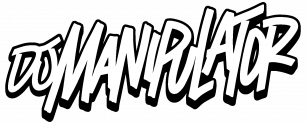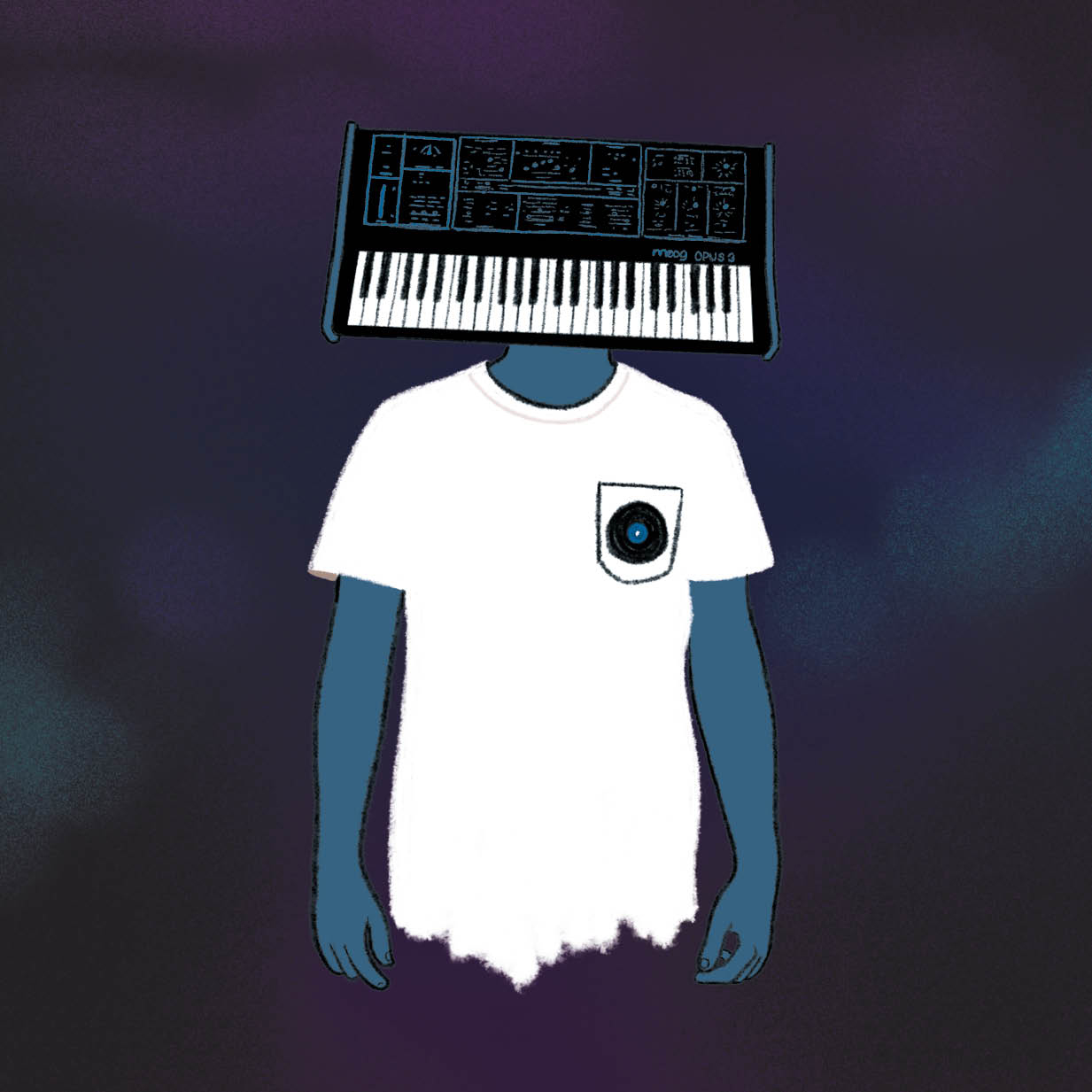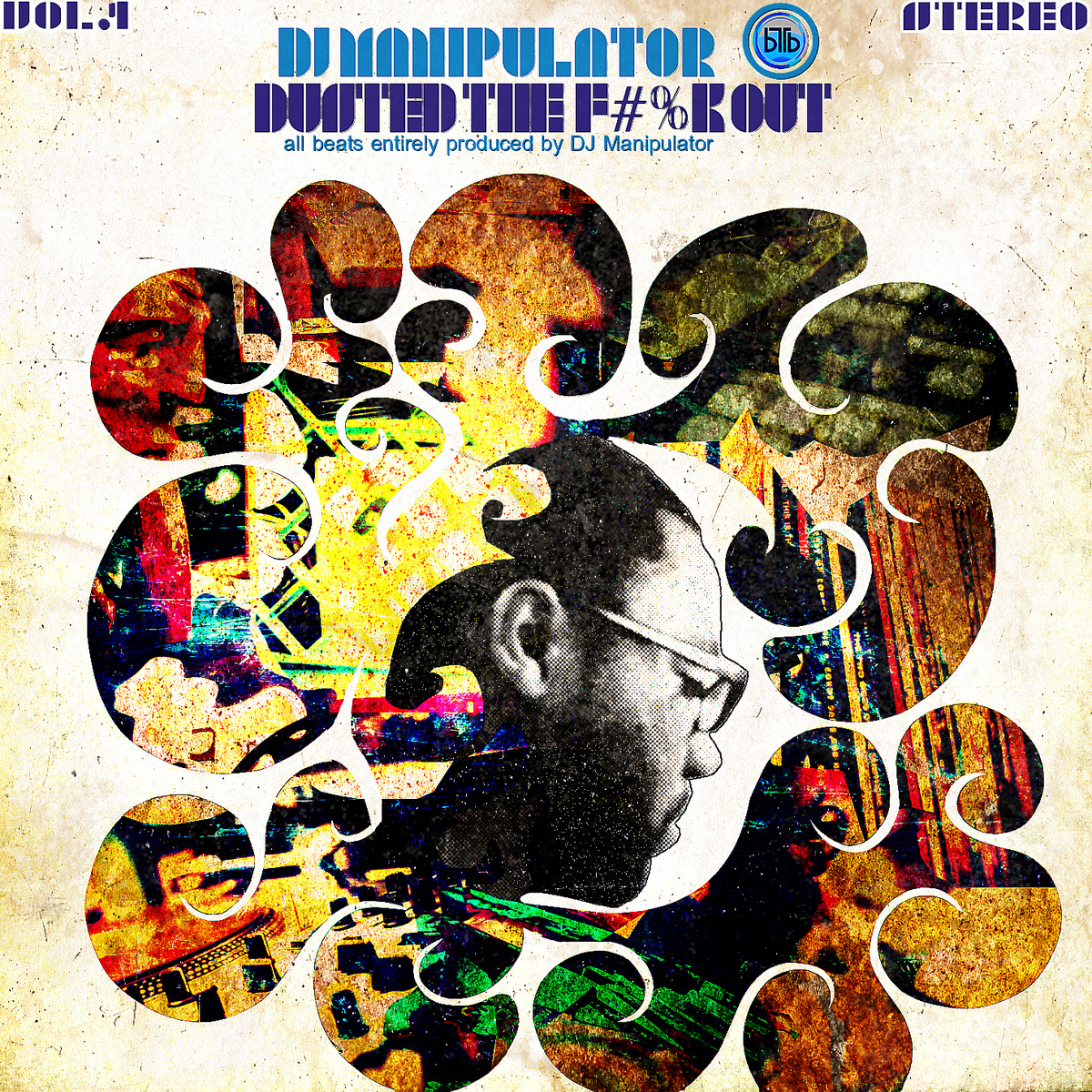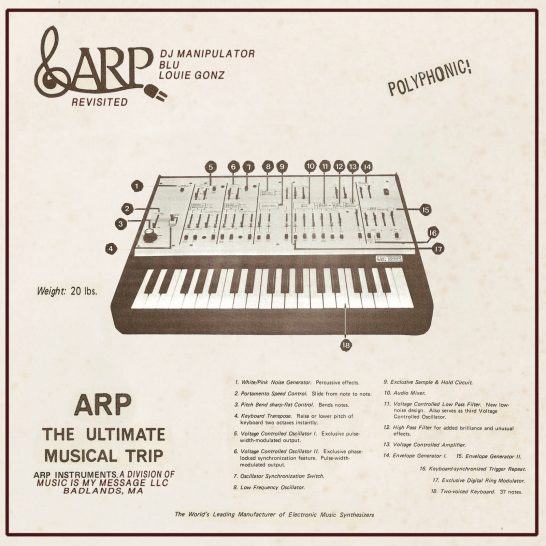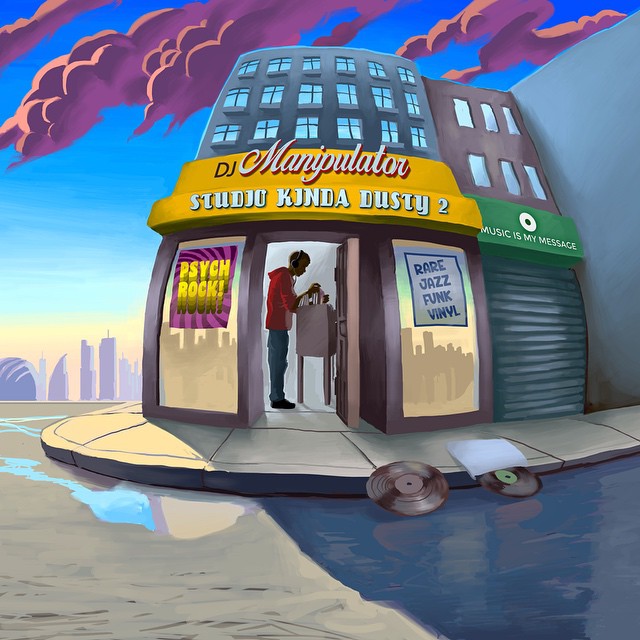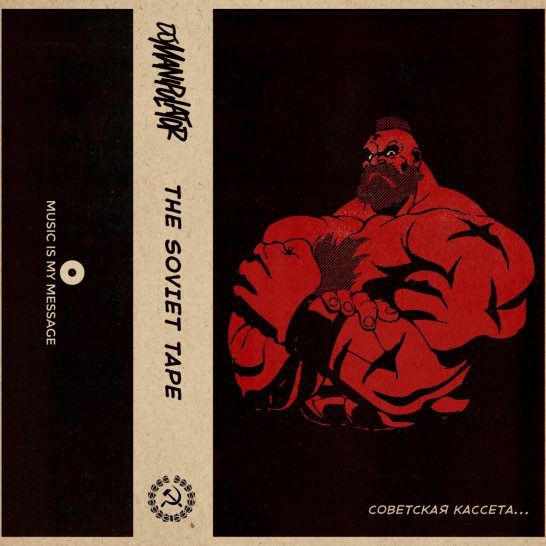With “The Synth Tape,” Hopedale hip-hop artist DJ Manipulator puts his cards on the table right in the intro to his new album, “The Synth Tape,” which will be available Feb. 6 at Backcourtrecords.com.
“We live in an age of technology,” says a man on a sample from what sounds like a long-lost instructional video. “We’re looking at a machine called an ‘electronic sound synthesizer.’ Machines touch every part of our lives.”
The last sentence is looped, distorted more in each iteration, each refrain seeming more inhuman and disconnected.
Manipulator, whose real name is Jonathan Montumer, is one of those musicians who seems to be everywhere at once. Last year, he released a solo mixtape, “Jazz is Everything,” and collaborated with rapper Lou Gonz for “The Loops,” as well as appearing on other hip-hop artists’ albums, such as Worcester rapper Ghost of the Machine. He also DJ’d behind the opening rappers at Joyner Lucas’ September concert at the Palladium.
“I’m always working,” says Manipulator in a phone interview. “Whether it’s something of mine or someone else’s … When it comes to collaborating, it’s usually good friends of mine. Ghost of the Machine, he came over one time, and I gave him a couple beats. A lot of people ask me for cuts or production. If it feels right, I’ll do it. I’m always working on something.”
Indeed, and he has a gift for making electronic music that’s layered, emotionally engaging and sonically coherent. “The Synth Tape,” for example, is a sort of deconstruction of what a synthesizer can do and how it’s been used. That Manipulator is able to take this concept and realize it is a definite display of skill. That he can do it and make it engaging is nothing short of astounding.
“I don’t see a lot of people doing cohesive mixes anymore,” says Manipulator, of “Jazz is Everything,” “If you listen closely to the mix, there are a lot of samples other people have used … I hope to turn someone younger than me on to jazz pieces … I grew up listening to it. … I remember my dad, when I was 6 or 7, played Herbie Hancock around the house, and later in high school I just got a deeper appreciation of his music.”
This intelligence and thoughtfulness resonate throughout “The Synth Tape,” transforming what could have been an academic exercise into something visceral and, at times, bracing. On “Circuit Breaker,” the first track after the intro, there’s aggressiveness to the beat that seems to counter the more delicate minor-key notes that come to the fore. On the next track, “What the Fuzz,” a brief sample explaining how a synthesizer works gives way to an electronic groove that escalates and overtakes the song. The next song, “Square,” introduces a more ominous beat that serves to rattle the album’s flow, to shift its direction. As the album gives way to “Light of Day,” the word “technology” refrains against a swaggering hip-hop beat, sampled sung vocals and an old school cascade of digital notes.
“Cohesive is important,” says Manipulator. “I like a flow of a storyline to the project – like with the vocal clips of people saying how to play synthesizer – so it flows and makes sense.”
It doesn’t just make sense, though. It actually deeps as it progresses, and somewhere amid a reflection on a single instrument — the synthesizer — there’s an underlying examination of our relationship with technology, which is a neat trick on a largely instrumental album. On tracks such as “MANIP 2030,” with its deep jazz overtones, it’s hard not to be struck by the song’s sheer humanity. “Technology is revolutionizing music,” says a voice at the beginning of the next track, “Waves,” but it’s hard not to hear the human hand shaping the digital music.
“ARP” and “Space” bring the listener an examination of tones, before flowing into the slow-burn grind of “Tomita.” There’s an earthiness about the music here that almost seems to rebel against the retro-futurism of songs such as the subsequent “Jarre.” These two strands of the album — the clean digital and the dirty techno — collide on the jarring “RE-Wired,” which seems to attempt a, no pun intended, sort of synthesis.
Perhaps then it’s not an accident that the next track, “Bleep,” discusses the limitations of the synthesizer, and the following track, “Modular,” feels even more disconnected in some ways, as sheets of music cascade at perpendicular angles to the beat.
As the album winds down with the penultimate track, “Roland,” it returns to a more familiar hip-hop feel before returning to the sampled narrator: “There is more to the art of sound design than tweaking parameters of your favorite preset or twisting knobs into some bold new configuration.”
Here, then, is the point of the adventure: That for all the synthesizer’s qualities, good and bad, it’s still music forged by a human being. It’s not just pushing a button. But rather than let the album end on a maudlin, educational note, he kicks out the jams one last bit with the bracing techno finale, “Explore,” the title of which alone seemingly advice enough.
“The Synth Tape” is one of three related projects Manipulator has in the works, the others being “The Soviet Tape,” which is all samples of Russian music, and “The Holy Tape,” which is all samples from what he calls “insane gospel albums.”
He waves away comments about how ambitious the triptych is, saying, “There’re other people who have done it before, but I wanted to put my spin on it: Another cohesive project, just done my way.”
